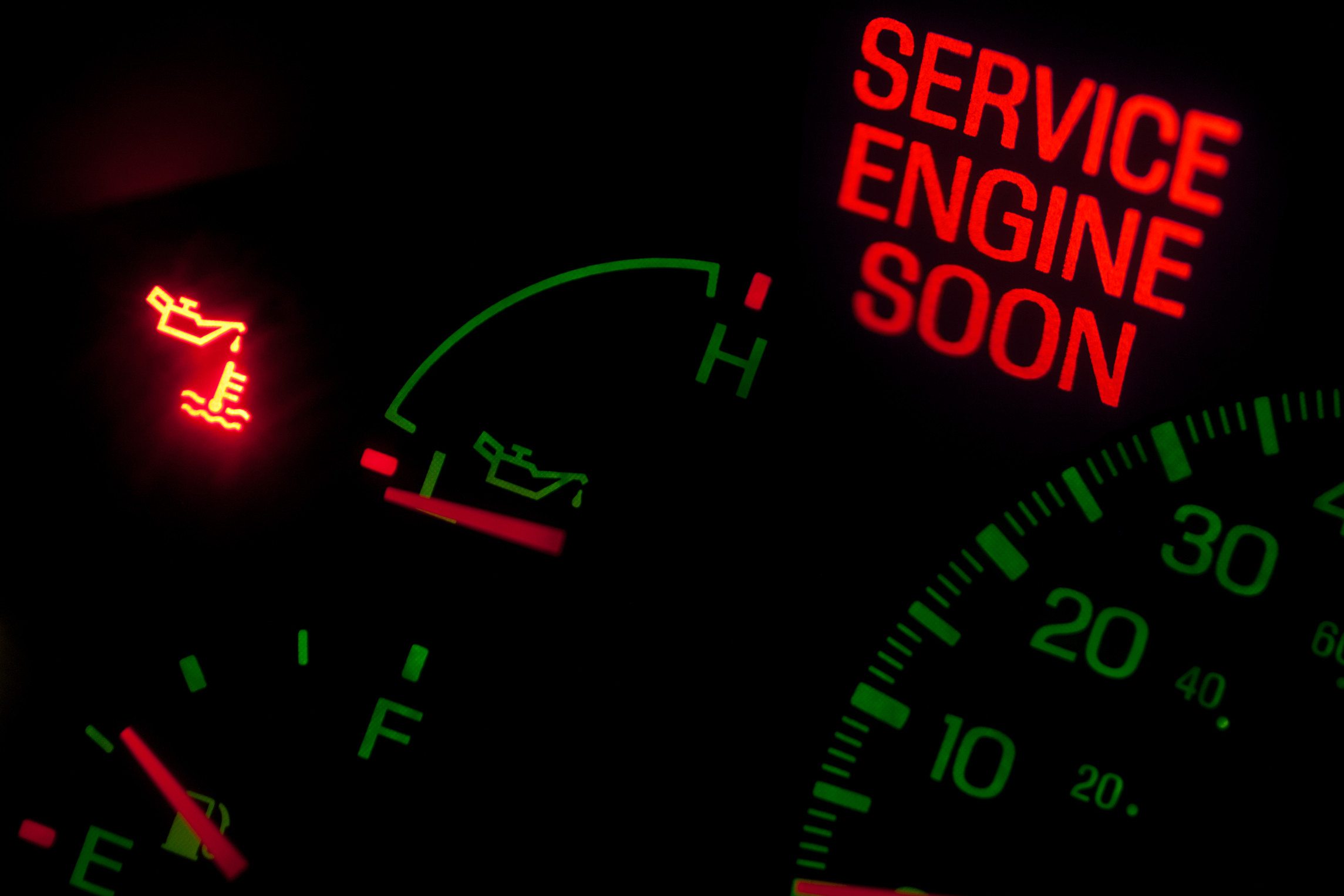
Many vehicle breakdowns that occur could have been prevented with regular maintenance. Many components of the engine and auxiliary systems wear down over time, and having them inspected periodically can help avoid small problems, that lead to big problems. Having these components inspected is called a tune-up, and you need to have one done every 3 years or 30,000 miles, whichever comes first. A tune-up should be about much more than replacing spark plugs, and you’ll know you’ve found a good mechanic shop when their checklist of tune-up items is long and well-rounded.
Here is a basic idea of the tasks that should be completed at a tune-up:
-
Change the Fuel Filter: If the fuel filter becomes too dirty, it can get clogged and restrict your engine’s fuel supply. It can also allow a buildup of impurities in the engine, which can damage the moving parts.
-
Change the Air Filter: An old air filter restricts the amount of oxygen being drawn in by the engine, which hurts performance, efficiency, and the overall life expectancy of your engine.
-
Replace Spark Plugs and Inspect Wires: A misfiring spark plug leads to a malfunctioning cylinder, which means that a whole section of your engine is not doing its job. Spark plugs need to be replaced periodically, and the wires leading to them do too.
-
Inspecting and Replacing Belts: Depending on the type of car you have, there are various types of belts that facilitate movement of the parts. These belts dry out and crack over time, which will eventually lead to a damaging break. All of the belts in your car need to be inspected for wear and tear at every tune-up.
-
Test and Replace the Distributor Cap, Rotor and Coils: The distributor and its components regulate the amount of high voltage energy running to your cylinders. It does this through a spinning and arcing motion, which causes wear and tear over time. The distributor cap and rotor usually need to be replaced at each tune-up, and all other components need to be inspected and possibly replaced.
- Battery Maintenance: When you unexpectedly find that your car won’t start, the battery is often the culprit. Tune-up time is the perfect opportunity to double check that it’s still holding a proper charge, that connections are clean, and that fluid levels are right.
-
Replace O2 Sensors: Your car needs the right mix of fuel and oxygen to run efficiently, and a faulty O2 sensor can throw things off balance. This sensor needs to be replaced periodically.
-
Replace PCV Valve: This little trap door allows a build-up of gasses to exit the engine, making room for clean oxygen. A faulty PCV valve can cause oil leaks and buildup in the engine.
Not all of these components will need to be replaced every time you have a tune-up, but they should all be inspected to ensure that your car is in top running condition. Any oversights could lead to costly repairs later on.
Related Posts
Key Takeaways On average, passenger vehicle tires last 40,000 to 60,000 miles, depending on type, driving habits, and maintenance. Replace tires when tread depth reaches 2/32”, if damaged, or older than 10 years. Regular rotation, alignment, and proper inflation extend tire life. Aggressive driving, poor roads, and harsh weather shorten tire lifespan. Take advantage [...]
When you think about car maintenance, you probably focus on oil changes, tire rotations, and maybe even brake pad replacement. But what about your brake fluid? If you’ve ever wondered, “What does brake fluid do?” or “Why is brake fluid important?”, you’re not alone. Brake fluid might not be the most talked-about part of [...]
Is that high-pitched squeal from your brakes driving you—and everyone else—crazy? Don’t ignore it. Squeaky brakes aren’t just annoying, they’re your car’s way of saying something needs attention. Whether you're cruising through Salt Lake City or winding up Idaho’s mountain passes, here’s what’s likely going on, how you can fix it, and when it [...]





